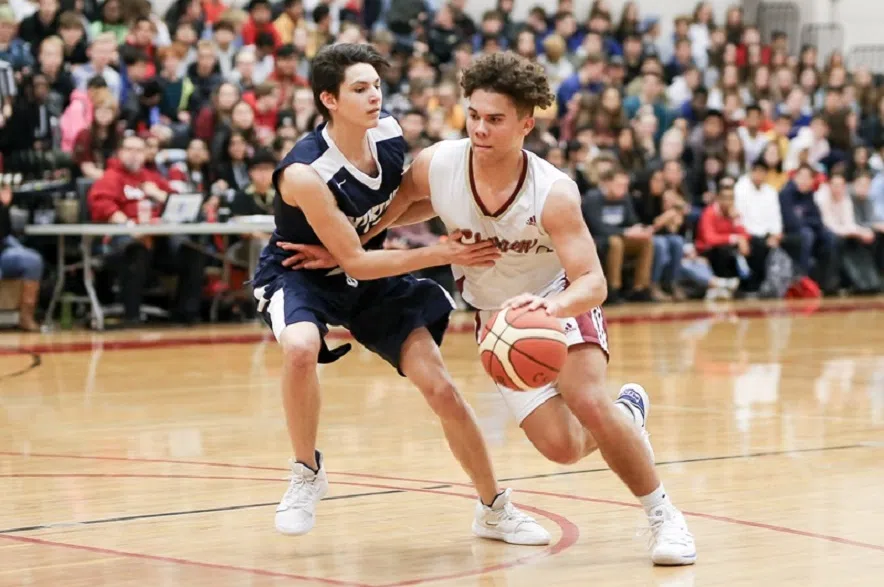WASHINGTON — Just because Canada and the United States worked closely together to restrict travel across their shared border doesn’t mean they were always going to move in lockstep when the time came to reopen it, Ottawa’s envoy to Washington said Friday.
There’s been “enormous” co-ordination and information shared between the two regarding the border since the onset of the COVID-19 pandemic, said Kirsten Hillman, Canada’s ambassador to the U.S.
“But co-ordination doesn’t mean you’re going to do exactly the same thing,” Hillman told a Wilson Center panel discussion alongside interim U.S. counterpart Arnold Chacón.
It was Hillman’s first public appearance since the U.S. confirmed Wednesday it would maintain its travel restrictions on non-essential visitors from Canada for at least another 30 days.
But her message was the same one she’s been delivering for weeks: that each country would ultimately make its own determinations.
The U.S. decision to extend the travel limits came just two days after Ottawa declared fully vaccinated American citizens and permanent residents would be allowed back Aug. 9, with the rest of the world to follow Sept. 7.
The restrictions have always differed significantly, Hillman noted — Canadian air travellers have always been able to fly to the U.S., where the bulk of the restrictions apply mainly to land crossings, while Canada has restricted all discretionary travel from south of the border.
“We both are also committed to making decisions based on science and the advice of experts — and those are our experts, our science, our experts, our country, what is happening for us on the ground,” she said.
“The U.S. is doing the same: it’s making decisions based on their situation on the ground.”
Chacón, who agreed with Hillman’s assessment of the “stellar” teamwork to date between the two countries, would only say that discussions about the border are ongoing and will continue.
“We continue to review our travel restrictions, and any decisions about reopening travel are going to be guided by our public health and medical experts,” Chacón said from Ottawa, parroting the Biden administration’s position.
“We take this very, very seriously. But I think we’re in a good place and the trajectory is very promising.”
Officials at DHS specifically cited the rampant spread of the Delta variant of COVID-19 as part of their decision — which includes Mexico — and promised to keep the lines of communication open.
But the apparent divergence has angered U.S. residents who have been waiting for months for the chance to visit Canadian friends, family and vacation properties, as well as the members of Congress who represent them.
New York Rep. Elise Stefanik, a Republican, denounced the decision earlier this week as “absolutely and unequivocally unacceptable,” joining a growing cadre of angry U.S. lawmakers that includes Senate Majority Leader Chuck Schumer and the entire congressional delegation for Maine.
Rep. Brian Higgins, a New York Democrat who has led the charge against the restrictions, described himself as “infuriated” with what he called an “incomprehensible” extension.
Border experts say the delay may be related to reluctance to reopen the U.S.-Mexico border, given the existing refugee crisis there, and the fear of political blowback if travel from Canada is allowed a head start.
There’s also the added element of whether or not the U.S., where only 57 per cent of eligible Americans have had a full course of a COVID-19 vaccine, will make proof of vaccination a condition of entry.
The White House has already made clear it does not support requiring vaccination credentials in the U.S., a country famous for its fierce guardianship of personal liberties.
John Adams, a Florida resident who owns a vacation property on Vancouver Island, has been crowdfunding a cross-border television and internet ad campaign against the two governments in recent weeks to convince them to lower the barriers.
His latest campaign-style attack ad, which began airing Friday, accuses Biden of “holding Canadian citizens hostage,” complete with famous images of blindfolded prisoners held in Iran during the 1980 hostage crisis there.
This report by The Canadian Press was first published July 23, 2021.
James McCarten, The Canadian Press







